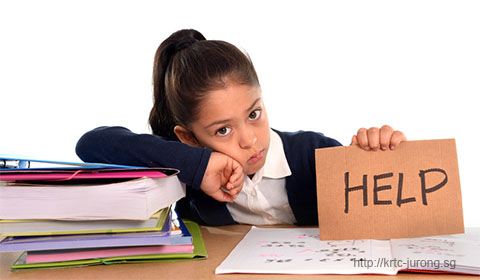Everyone would have experienced education stress at some point in their academic life. The positives and negatives of education stress has been a widely debated topic. Differing cultures have differing views about how impactable should education stress be on students today; how healthy it is for students and to what extend should education stress be manageable before others should intervene to help the student cope with the stress.

Singapore’s education system may be topping the charts all over the world, but it is putting a lot of academic and education stress on its students. Education stress has been a huge debate as to its impact on a student’s academic performance. Education stress has been proved to be one of the motivational forces that drives Singapore’s students to academic excellence. Research has shown that stress at appropriate levels can be a motivating force that energises us for the challenges we face. However, having overly high achievement motivation is also correlated with anxiety levels. Students should be highly motivated to learn and achieve, however, it must not come at the expense of their mental, emotional and physical wellbeing.

Research have shown that high levels of stress can lead students to doing unfavourable and illegal activities such as glue sniffing, drugs, and even cause bodily harm to themselves as a form of distraction from their school work. In 2016, the suicide rate among 10- to 19-year-olds doubled from 2014, reaching a 15-year high. In 2015, 50 teens reported self-harming, an increase from 44 in 2014.
Stress may affect a student’s health and their academic performance. Hence, coping strategies are specific efforts designed to help individuals better cope with stress and the anxiety that comes with it. Examples of coping strategies are slow breathing, mental vacations and doing a relaxing hobby such as reading a book or painting. Different individuals have their own subjective way to cope with stress. Thus, finding the suitable mode of relaxation for yourself would come in handy in stressful situations.
Stress and anxiety is a personal response that comes from one’s expectations, the expectations of the people around them and their ability to manage challenges. Hence, having a wider perspective of the education system, managing one’s expectations and looking beyond one’s, achievement can help students manage and cope with stress. Developing an understanding of one’s strength and weaknesses. Having bite size goals and short-term milestones can help in coping with anxiety. These bite size goals also help students keep track of their path to success. Such that if they miss their final target, they can still take pride in the overall achievement and journey that had embarked on.
All in all, education stress has its positives and its negatives. While its positives can pose as a motivation for students, its negatives can affect students’ mental, emotional and physical health. Having a knowledge of some coping strategies will help in time of stress and anxiety.

Here are some good examples of coping strategies for children to engage in:
• Achievable milestones towards the final goal
• Sharing their anxieties & frustration with their parents
• Good family support achieve balance
• Taking a walk in the park
• Self-directed journaling
• Solving puzzles or having a hobby
• Listening to relaxing music
• Deep abdominal breathing